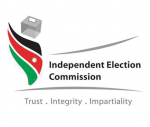You are here
Obama’s moment of truth
Nov 11,2015 - Last updated at Nov 11,2015
Palestinian officials contemplating various interventions in international forums were asked by Washington to wait until after the Obama-Netanyahu summit meeting.
The expectation was that the meeting, following the Israeli leader’s bad behaviour on the Iran deal, would witness the long awaited US pressure on Israel regarding the peace process.
This has not happened.
What transpired, in fact, even before the summit was an estimation by the White House that the internationally sanctioned two-state solution will not see the light of day during the Obama administration.
The shocking announcement is contrary to the trend of the last two decades, whereby the last years of the second term of a US president is precisely the time that the American administration can try to get something done about the Palestinian-Israeli conflict.
Conventional thinking was that, relieved from the usual election constraints and pressure from the pro-Israel lobby, American presidents can try to do what is right and not what is politically expedient.
It is still unclear what the US strategy behind the public estimation on the eve of Netanyahu’s visit was.
Was it aimed at egging the Israeli leader to act unilaterally towards peace or else that he would find the US unwilling to protect Israel in the Security Council and other forums, or was it simply America’s washing its hands of this conflict and leaving Israel to continue doing what it wants to do?
Before the meeting with Obama, Netanyahu, seeing that this might be a trap, repeated the fib few believe that he was interested in peace and the conditional two-state solution.
He repeated his support for a demilitarised Palestinian state which must recognise Israel as a Jewish state.
But after the meeting, which he called “the best ever” and later toned it down to “wonderful”, Netanyahu boasted that the American president did not ask Israel specifically to stop building settlements.
Palestinian leaders have yet to be fully briefed about what actually happened and what exactly is the US strategy.
If the US strategy is indeed an attempt to outsource solving the Palestinian conflict to the EU or the international community, then the logic of such a decision would be that the Obama administration will not block any reasonable plan that would require UN Security Council resolution.
This would also mean that the balance of forces that has existed over the last decades would shift a little.
The US clearly wants to continue its military and security support for its main ally in the region, but that this support will not include political support in the various international forums.
This will certainly give impetus to the French peace plan, which was built on the Arab plan defeated in the Security Council, which Jordan attempted to submit at the end of the 2014, but failed to gain the needed nine positive votes to do so.
The French plan, like the Arab resolution, should focus simply on the need to agree to an end date to the Israeli occupation.
Just like Israel was founded when the British Mandate declared May 15, 1948, the end date of its rule over Palestine, the Israelis must be given such an end date for their illegal military occupation, their colonial settlement movement.
Once a day is voted on to end the Israeli occupation, the talks would no longer be focused on what the end result is, but on how to execute the agreed end result.
Since most estimates of the French resolution are that it will call for the end of occupation within two or three years, the American estimate is correct that no independent Palestinian state will exist within Obama’s next 14 months in office.
The Obama administration ,which has just emerged victorious from a bloody fight with Republicans and pro- Israel lobby over the Iran deal, is probably not interested in another fight that could hurt the Democratic Party’s chances in 2016.
The best scenario, from Washington’s point of view, could be to nudge the Israelis to move seriously on the peace process, worried that America will not always back it politically.
If the Americans are washing their hands of the Palestine cause while continuing to protect Israel with the veto power, as Netanyahu implied, this would be the most disastrous decision possible.
It took the Israeli army six days to occupy the rest of Palestine, the Golan Heights and Sinai.
Fourteen months is a long time to find a solution to the Israeli-Palestinian conflict.
Palestinians, especially the youth, who are fighting for their lives and future do not live by the American presidency timetable.
They want an end to the misery and oppression they have been born into.
The two-state solution is no longer on the cards; instead, we should be pushing for one state in which all citizens have equal rights.













